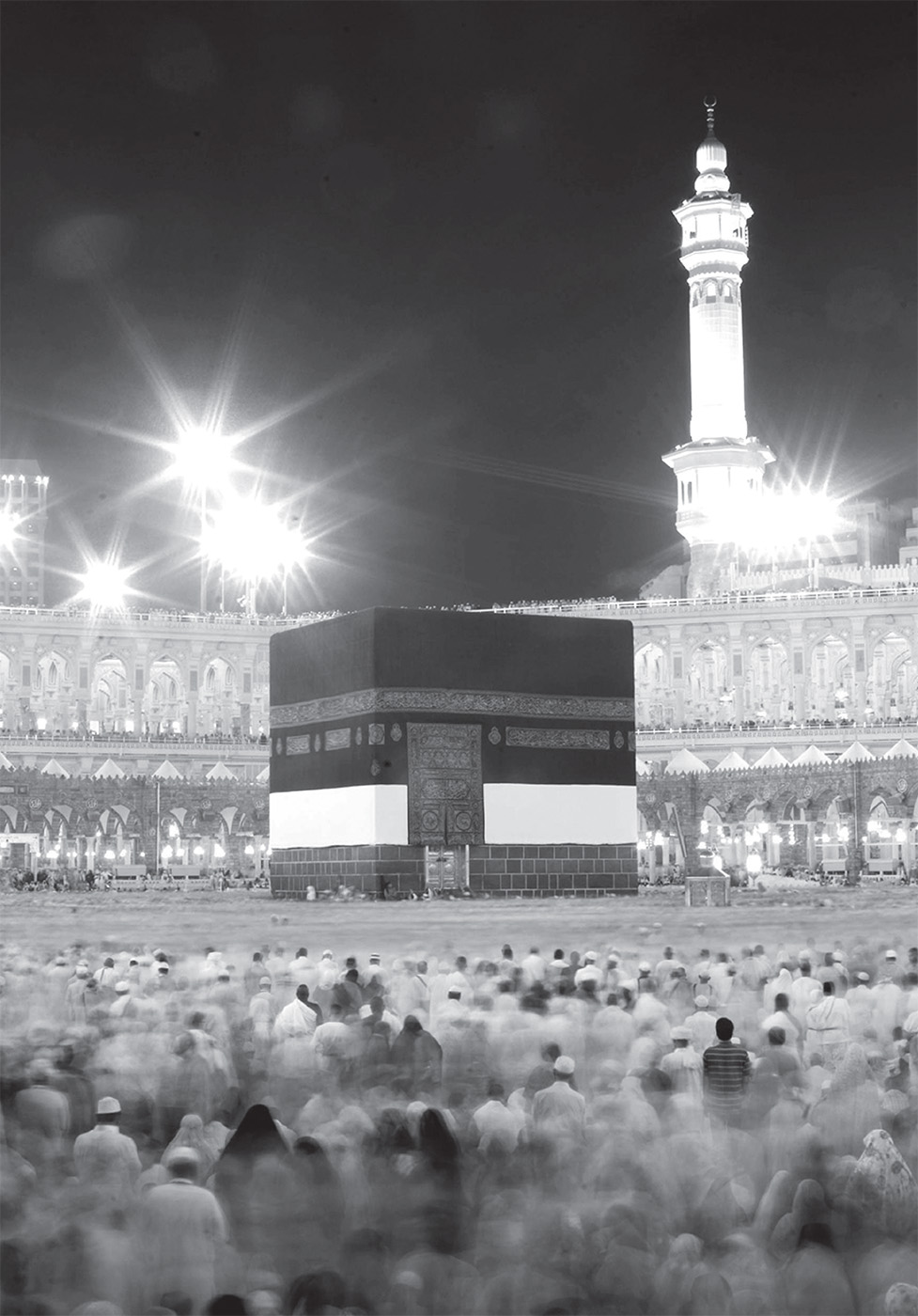

THE PROPHET MOHAMMED
From the Surah al-Baqarah (Qu’ran), 7th century AD
THE PROPHET MOHAMMED
Born in 570, in Mecca, western Arabia. Orphaned at a young age, Mohammed was brought up by his grandfather and uncle.
At 25 he married a wealthy widow, Khadijah, and became a merchant in her business. In 610 Mohammed reported a vision of the Angel Gabriel who transmitted to him the first of many divine revelations, which he began to disseminate, attracting followers as well as opponents. In 619, the ‘year of sorrows’, his wife and uncle died, and his revelations reached their most intense phase. He escaped persecution, going north to Medina in 622 and establishing a loyal following there; subsequent years saw violent clashes with the Meccan nonbelievers. In 629 he undertook the first Haj (pilgrimage) to Mecca, but after a truce with Mecca broke down he led his forces to capture the city in 630.
Died 632 in Medina. Around 650, the third caliph, Uthman, ordered the creation of an authoritative Qu’ran.
For Muslims, The Qu’ran (or Koran) contains the words of Allah (God) as revealed to the Prophet Mohammed early in the 7th century AD. They were written down in a canonical version some years after Mohammed’s death, producing an Arabic text that has since not varied. The Qu’ran, together with the hadith (the life and teachings of Mohammed), form the twin pillars of Islam. As such, they have been hugely influential in structuring Muslim societies and the lives of individual believers, from the unification of the Arab tribes in the 7th century to the present day.
Among the revelations is God’s instruction concerning the qiblah, the direction in which Mohammed and his followers should pray, and which accounts for the practice of Muslims facing towards Mecca when at prayer. The Qu’ran is divided into surahs (verse-sections), and this passage occurs in the Surah al-Baqarah (‘The Cow’), Verse 2 (144–50).
The historical background to the passage relates to the year 622, when Mohammed and his followers fled the hostility of the unconverted Meccans to establish themselves in the northern city of Medina, a relocation known to Muslims as the hegira (or hijra). Medina also contained other religious groups – Jews, Nazarenes and Christians – who all offered their prayers towards Jerusalem, a city central to their beliefs. There were also worshippers in Medina who would turn towards the Ka’aba (literally ‘cube’), an ancient religious shrine and site of pilgrimage in Mecca. Mohammed at first offered his prayers towards Jerusalem; but he felt drawn towards offering his prayers towards the Ka’aba, the house that his ancestors and the prophets Abraham and Ishmael had rebuilt many centuries before, but which now housed idols. He was troubled by this impulse until Allah directed him to do so. The Ka’aba is now at the centre of Mecca’s mosque complex.
As the verses suggest, Islam is not an entirely separate belief system from the Judeo-Christian tradition. It embraces much from those faiths, and Mohammed referred to himself as the ‘seal of the prophets’, the last of a long line including Moses and Jesus. Abraham represented a supreme example of godly humility because he had submitted to the will of God in offering to sacrifice his son to Him. And ‘Islam’ itself means ‘submission to the will of God’.
INDEED WE SEE THE TURNING OF YOUR FACE TO HEAVEN, so We shall surely turn you to a qiblah [prayer direction] which you shall like; turn then your face towards the Sacred Mosque, and wherever you are, turn your face towards it, and those who have been given the Book [Scriptures, i.e. Jews and Christians] most surely know that it is the truth from their Lord; and Allah is not at all heedless of what they do.
And even if you bring to those who have been given the Book every sign they would not follow your qiblah, nor can you be a follower of their qiblah, neither are they the followers of each other’s qiblah, and if you follow their desires after the knowledge that has come to you, then you shall most surely be among the unjust.
Those whom We have given the Book recognize him as they recognize their sons, and a party of them most surely conceal the truth while they know (it).
The truth is from your Lord, therefore you should not be of the doubters.
And every one has a direction to which he should turn, therefore hasten to (do) good works; wherever you are, Allah will bring you all together; surely Allah has power over all things.
And from whatsoever place you come forth, turn your face towards the Sacred Mosque; and surely it is the very truth from your Lord, and Allah is not at all heedless of what you do.
And from whatsoever place you come forth, turn your face towards the Sacred Mosque; and wherever you are turn your faces towards it, so that people shall have no accusation against you, except such of them as are unjust; so do not fear them, and fear Me, that I may complete My favour on you and that you may walk on the right course.